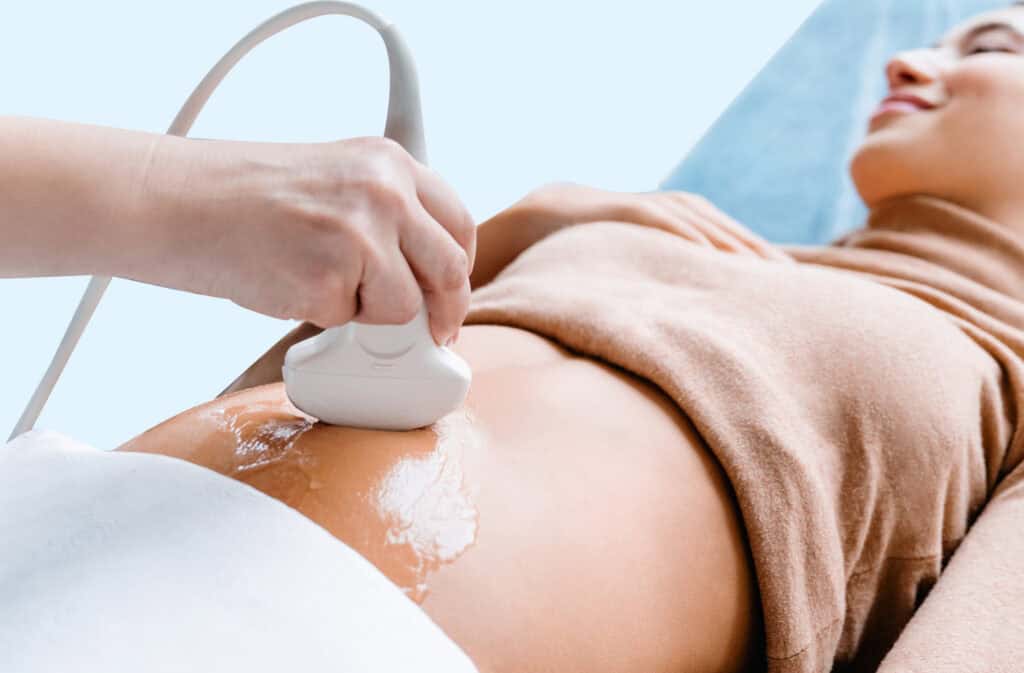Femia > Health Library > Getting Pregnant > Trying to conceive > Best fertility exercises: Yoga, workouts, and more to boost fertility
Best fertility exercises: Yoga, workouts, and more to boost fertility

- Updated Feb 11, 2025
- Published
CRAFTED BY HUMAN
Crafted by human At Femia, we provide accurate and up-to-date information at every stage of your journey, from trying to conceive, pregnancy and postnatal support. All content is created by a real person based on in-depth research and own professional experience. Femia ensures that you will receive expert advice, strict accuracy and a personalized approach from our authors/medical experts. Learn more about our editorial policy.
FACT CHECKED
Fact checked At Femia Health, we maintain the highest standards of editorial excellence in delivering content focused on helping you conceive, guiding you through pregnancy, and supporting you postpartum. Explore our content review principles to learn how we ensure the accuracy and quality of our health and lifestyle tips for every stage of your journey.
- Regular moderate exercise can boost fertility by balancing hormones, reducing stress, and maintaining a healthy body mass index (BMI). Focus on activities like walking, swimming, and yoga.
- Tailor your workout intensity to your current fitness level and BMI.
- Avoid excessive high-intensity workouts, which can disrupt hormonal balance. During fertility treatments like in-vitro fertilization (IVF), follow your doctor’s advice on exercise limitations.
Can exercise help you get pregnant? And, are certain types of exercise better at boosting fertility than others? If these are questions that have been running through your mind, you’ve come to the right place.
Living a healthy lifestyle is not only important for overall health—it can help boost your fertility as well. In this article, we’ll explore the best fertility workouts to support you on your journey to parenthood and help you stay active in a way that benefits your body.
How exercise affects fertility
So, how does exercise help your fertility? Regular exercise can improve fertility by helping to balance hormones, reduce stress, and improve circulation—all of which are important for reproductive health.
The impact of exercise on fertility is complex and tricky to study. Exercise, diet, and weight are all closely connected, so figuring out how each one separately affects fertility can be challenging.
What we do know, however, is that having a healthy BMI reduces your chances of suffering from some types of infertility, and exercising regularly is key for maintaining a healthy BMI. Weight higher or lower than the healthy range (see BMI table below) can affect how your body makes and releases the hormones needed for ovulation.
If your reproductive hormones are out of balance, it may mean that your ovaries don’t release an egg regularly, which can make it hard to get pregnant naturally.
👉Find out more: Fertility diet: What to eat to boost your chances of getting pregnant
The kind of exercise you choose could also make a difference. In a study of over 2000 women, those in the “overweight” or “obese” BMI categories saw a boost in fertility with vigorous exercises like swimming, running, or weight training. On the other hand, moderate activities like walking, gardening, or yoga were linked to only a small improvement.
If you suffer from the fertility condition polycystic ovary syndrome (PCOS), then exercise could be even more important for your fertility. A 2023 review explored studies on how exercise affects fertility and found three key takeaways for those with PCOS:
- Step it up. It takes vigorous exercise like running, swimming, and resistance training to have a positive impact on fertility.
- Keep it up. The benefits of exercise on PCOS can take up to a month to appear, so don’t give up even if you haven’t seen a change yet.
- Don’t worry about the scales. The benefits that exercise has for your fertility isn’t always linked to how much weight you lose. So, even if the scales aren’t changing, don’t lose hope—your fertility will still be being boosted.
| Weight status | BMI |
|---|---|
| Underweight | Below 18.5 |
| Healthy | 18.5–24.9 |
| Overweight | 25.0–29.9 |
| Obese | Above 30.0 |
Fertility yoga: Poses to try
Fertility yoga is a gentle yet powerful way to align your body and mind and support your journey to motherhood. While doing yoga doesn’t directly impact egg quality or quantity, it has been found to help couples get pregnant.
So, how does fertility yoga boost your chances of conceiving? Yoga reduces stress, promotes relaxation, and helps you stay fit and healthy. Both stress and raised BMI are well-known factors linked to infertility, and practicing yoga can help you manage both to optimize your fertility.
A recent 2024 review explored the potential that yoga plays a deeper role in fertility by protecting the body against inflammation, enhancing blood flow to the reproductive organs and balancing hormones. However, the review concludes that more rigorous scientific research is needed to fully understand yoga’s impact on fertility.
Here are a few specific fertility yoga poses to try:
- Butterfly pose (Baddha Konasana). This pose gently stretches the inner thighs, hips, and groin area, increasing blood flow to the pelvic region. It’s also great for opening up the hips, which may help during childbirth when the time arrives.
- Legs up the wall (Viparita Karani). This restorative pose helps to calm the mind, reduce stress, and improve circulation to the lower abdomen and pelvis.
- Seated forward bend (Paschimottanasana). This pose stretches the spine and hamstrings while gently massaging the abdominal organs. It helps increase blood flow to the pelvic area and reduce stress.
- Sun salutation (Surya Namaskar). This pose is well known for helping to manage menstrual cramps by encouraging blood flow to the reproductive organs.
4 tips to add fertility yoga to your daily routine
- Start small. You don’t need to spend hours on the mat; just 10–15 mins at the start or end of the day can make a difference.
- Join a class. If you’re new to yoga, consider joining a class either in person or online to help you get to grips with the different poses, learn how to meditate effectively, and build a supportive community.
- Consistency is key. Squeezing in a short session even when you don’t feel like it, are busy, or have done another workout will help it to become a routine part of your day.
- Don’t give up. The stress relieving, strengthening, and flexibility benefits that go hand in hand with yoga won’t appear overnight. Keep at it, though, and you will see results.
👉Find out more: Ultimate pre-pregnancy checklist: Essential steps to take before having a baby
Best exercises to optimize fertility
When it comes to exercise and fertility, what works best really depends on you. Your fitness level, health, lifestyle, BMI, and what you enjoy all play a role in finding the right routine. If you’re new to exercise, it can feel overwhelming and even a little scary. It might be helpful to chat with your healthcare professional—they can guide you on how to start safely and make sure you feel supported every step of the way.
Here’s a general guide to different exercise levels and who they might benefit the most.
- Low-intensity exercise. If you are an exercise newbie looking to optimize your fertility, then starting out with low intensity and low impact exercises like walking and yoga will help you to build up cardiovascular strength without getting injured. Start by setting a daily step target, and consider introducing a weekly hike with some incline to challenge yourself.
- Medium-intensity exercise.This can be anything that makes your heart beat faster, makes you breath quicker, and makes you feel warmer. The general guide is that you can still talk while doing it, but not sing. Brisk walking, a dance class, doubles tennis, and water aerobics are all great examples. Try to get in 30–40 mins a day, four to five days a week. This level of exercise is ideal for helping you to maintain or reach a ”normal” BMI and optimize your fertility.
- High-intensity exercise. For those with a higher BMI, vigorous exercises like running, swimming, high-intensity interval training (HIIT), and walking up stairs can help you to reach a healthier weight and improve your chances of conceiving. For women in the “normal” BMI category, vigorous exercise is also okay as long as you replace the calories you use during the workout. Leaving your body in calorie deficit (burning more calories than you eat) can disrupt your menstrual cycle and reduce your chances of getting pregnant.
A note on strength training
Strength training is a fantastic exercise for most women, and it may be especially beneficial for those with PCOS. However, if you’re thinking about adding strength training to your routine, chat with your healthcare provider first. It’s also worth considering professional help to get started.
Begin with light weights or bodyweight to build strength gradually and avoid injury.
Running for fertility
Running can be an effective way to support overall health, which plays a crucial role in enhancing fertility. As a cardiovascular workout, running helps improve circulation, boost metabolism, and reduce stress—factors that are important for reproductive health. However, there are key benefits and considerations to keep in mind.
Benefits:
Improved circulation: Regular running promotes healthy blood flow, ensuring that the reproductive organs receive a good supply of oxygenated blood, which is essential for ovulation and a healthy endometrial lining.
Hormonal balance: Running stimulates the release of endorphins, which helps reduce stress and balance cortisol levels. Lowering stress hormones may positively influence reproductive hormones like estrogen and progesterone, which are key for conception.
Weight management: Maintaining a healthy body weight is crucial for fertility, as both underweight and overweight individuals can experience hormonal imbalances that may hinder ovulation. Running can help manage weight by burning calories and improving metabolism.
Mood and stress reduction: High stress can negatively impact fertility by disrupting hormonal balance. Running releases feel-good hormones like serotonin, reducing anxiety and improving mental well-being, which can create a more favorable environment for conception.
Caution:
Overexercising: Excessive running or high-intensity training can lead to the depletion of vital nutrients, increase cortisol levels, and disrupt menstrual cycles. Women who run too intensely may experience irregular periods or even amenorrhea (the absence of menstruation), which can impair fertility.
Body fat considerations: While running can help manage weight, it’s important not to push the body fat percentage too low. A certain amount of body fat is essential for regular ovulation and hormone production. If running leads to drastic weight loss, it may negatively impact fertility.
Listen to your body: If you notice changes in your menstrual cycle, such as missed periods or irregularity, it may be a sign that you’re overdoing it. Adjust your running routine to find a balance that supports your overall health and fertility.
Swimming for fertility
Swimming is an excellent low-impact exercise that supports fertility by enhancing overall fitness without placing undue stress on the body. This full-body workout promotes cardiovascular health, muscle tone, and relaxation, all of which can positively affect reproductive health.
Benefits:
Low-impact exercise: Swimming is gentle on the joints and muscles, making it ideal for women who want to stay active without overstraining their bodies. This low-impact nature helps maintain physical fitness without the risk of injury or excessive stress, both of which can negatively affect fertility.
Improved circulation: Like other forms of cardiovascular exercise, swimming improves blood circulation, ensuring the reproductive organs receive proper oxygen and nutrients. Enhanced circulation can support healthy ovulation and a thicker, more fertile endometrial lining.
Stress reduction: The soothing nature of water helps calm the mind, reducing stress and anxiety. Since stress can interfere with hormonal balance and ovulation, swimming can be an excellent way to lower cortisol levels and promote a healthier hormonal environment for conception.
Weight management: Maintaining a healthy weight is crucial for reproductive health, and swimming offers a full-body workout that helps burn calories and build muscle. This balance between cardiovascular exercise and strength training can help regulate body weight, which is key for regular ovulation and hormone function.
Caution:
Exposure to pool chemicals: Frequent exposure to chlorinated water might have a potential impact on fertility. Some studies suggest that high levels of chlorine byproducts may disrupt hormone function. If you swim regularly, consider alternating between swimming in chlorinated pools and natural bodies of water, or look for pools that use saltwater or lower-chlorine systems.
Overtraining: As with any form of exercise, balance is key. Overdoing swimming sessions, particularly when combined with other high-intensity workouts, could lead to fatigue and increased stress hormone levels, potentially impacting fertility.
Hydration: Spending long periods in water can sometimes mask feelings of dehydration. Dehydration can affect overall body function, including reproductive health. Make sure to drink plenty of water before and after swimming to stay properly hydrated.
Walking for fertility
Walking is one of the simplest and most accessible forms of exercise, making it an excellent choice for women looking to enhance their fertility. This low-impact activity can be easily integrated into daily routines and provides numerous health benefits without the risks associated with more strenuous exercises.
Benefits:
Gentle exercise: Walking is a low-impact activity that can be done at any fitness level. It helps improve cardiovascular health, maintain a healthy weight, and enhance overall fitness without placing undue stress on the body, which is crucial for reproductive health.
Stress relief: Walking, especially in nature, can significantly reduce stress and anxiety levels. The rhythmic nature of walking and exposure to the outdoors can promote relaxation and improve mood, both of which are beneficial for hormonal balance and overall well-being.
Improved circulation: Regular walking boosts blood circulation, which helps supply oxygen and nutrients to the reproductive organs. Good circulation is vital for healthy ovulation and supporting the menstrual cycle.
Weight management: Maintaining a healthy weight is essential for fertility, as both excessive weight and being underweight can disrupt hormonal balance. Walking can help manage weight effectively and sustainably, contributing to a healthier reproductive environment.
Caution:
Too much strain: While walking is low-impact, excessive walking, especially if it becomes overly strenuous or is combined with other high-intensity workouts, may lead to fatigue and stress. Listening to your body is essential to ensure you’re not pushing beyond your limits.
Footwear matters: Proper footwear is important for walking to prevent injuries. Wearing shoes that provide adequate support can help avoid issues like plantar fasciitis or joint pain, which could discourage consistent activity.
Avoid overdoing it: While regular walking is beneficial, it’s important to find a balance. If walking starts to feel like a chore or leads to fatigue, consider varying your routine with other gentle forms of exercise or incorporating rest days to allow your body to recover.
What is considered excessive exercise when trying to conceive?
Excessive exercise is when your workouts are too intense or too frequent, to the point where they negatively impact your hormonal balance and reproductive health. When you over-exercise, especially with high-intensity or endurance workouts, your body can lose too much body fat. This reduction in body fat can disrupt your ovulation and menstrual cycles, making it more difficult to conceive.
If you have a rigorous workout routine, it’s a good idea to talk with your healthcare provider. They can help identify any potential concerns and suggest adjustments to keep your fitness plan in line with your fertility goals.
Cross-Fit, weight training, and IVF: What you need to know
Undergoing fertility treatment can be tough on both your body and mind, and it might feel like you’ve been handed a long list of “don’ts.” When it comes to exercising during IVF, the best thing you can do is have a chat with your healthcare provider. They know you and your body well and can guide you on what activities are safe and when to take it easy.
You’ll probably be able to stick with much of your routine, but your doctor will likely advise against vigorous exercise like HIIT, cross-training, or heavy lifting. This is because, during IVF, your ovaries are stimulated to produce eggs, making them larger and more sensitive. High-intensity workouts can reduce blood flow to the ovaries or interfere with the delicate IVF process, potentially compromising your eggs.
While staying fit is important, the time you’re undergoing IVF isn’t the best moment to start a new workout regime or push your body. Focus on gentle activities that keep you healthy without adding extra stress.
👉Find out more: Cycle syncing: Optimize your lifestyle with your menstrual cycle phases
Do hip thrusts lower the chance of pregnancy?
One common myth that you might have come across is that some exercises, like hip thrusts, can harm your chances of getting pregnant. But, rest assured, there is no evidence to back this up. Hip thrusts, like other strength-training exercises, are usually perfectly safe.
Regular moderate exercise supports fertility by improving overall health, helping you maintain a healthy weight, and reducing stress. The key is to avoid overdoing it with high-intensity workouts that could disrupt your hormonal balance.
Tips for creating a fertility-friendly workout routine:
Creating a fertility workout routine is all about balance and listening to your body. Here are some practical tips to help you get started:
- Prioritize moderate exercise. Engage in activities like walking, swimming, yoga, or light strength training. These exercises promote overall well-being without putting too much strain on your body, especially if you’re undergoing IVF.
- Don’t push your body too hard. Maintaining a healthy BMI is key, but now is not the time to be pushing yourself or taking up new challenges. While staying active is important, high-intensity workouts can sometimes disrupt hormonal balance and affect fertility.
- Incorporate relaxation techniques. Include relaxation-focused exercises, such as yoga or stretching, to help manage stress.
- Consult your healthcare provider. Talk to your healthcare provider or a fitness expert for personalized advice. They can help you tailor your routine to your specific needs and ensure it aligns with your fertility goals.
- Listen to your body. Pay attention to how your body feels during and after exercise. If something feels off, don’t hesitate to adjust your routine or take a break.
Questions from Femia community
I often do HIIT. Can it affect my fertility?
HIIT is a great way to stay fit, but when it comes to fertility, it’s all about balance. While HIIT can be beneficial for your overall health, doing it too often or too intensely might impact your hormonal balance, which could affect your fertility. Consider reducing the frequency of HIIT sessions and balancing it out with moderate exercise sessions like swimming and walking. If you’re unsure about your fitness routine, have a chat with your healthcare provider for personalized advice.
Is it safe for me to start a new exercise routine while trying to get pregnant?
Yes, but it's important to start gradually and choose low-impact exercises. The goal should be to reach a healthy BMI without causing your body too much stress, so you will need to start slow and stay consistent. Consult with a healthcare provider before beginning any new exercise routine to ensure safety.
Can exercise help me with PCOS?
Yes, regular exercise can help manage PCOS symptoms, improve insulin sensitivity, and support hormonal balance—all of which can boost fertility. There is some evidence to suggest that strength training is particularly useful for improving fertility in those with PCOS. But, before changing your workout routine, we suggest having a chat with your healthcare provider.
The bottom line
Staying fit and maintaining a healthy weight can boost your fertility by helping to balance hormones, reduce stress, and improve circulation. The type and intensity of exercise that’s best for you will depend on your fitness level, BMI, and any health conditions you may have. Generally, regular moderate exercise supports a healthy lifestyle and optimizes fertility. Activities like fertility yoga can also be especially helpful by reducing the stress many women feel while trying to conceive.
If your BMI is higher or lower than the healthy range, it could affect your chances of getting pregnant. That’s why it’s a good idea to talk with your healthcare provider—they can offer personalized, non-judgmental advice tailored to your situation. If you have any concerns about your fertility or exercise routine, a chat with them can help you get started down the right path.
References
- “Adult BMI Categories.” BMI, 19 Mar. 2024, www.cdc.gov/bmi/adult-calculator/bmi-categories.html.
- “Exercise and Stress: Get Moving to Manage Stress.” Mayo Clinic, 3 Aug. 2022, www.mayoclinic.org/healthy-lifestyle/stress-management/in-depth/exercise-and-stress/art-20044469.
- “Infertility and Stress.” Mayo Clinic, www.mayoclinichealthsystem.org/hometown-health/speaking-of-health/infertility-and-stress.
- McKinnon, Craig J., et al. “Body Mass Index, Physical Activity and Fecundability in a North American Preconception Cohort Study.” Fertility and Sterility, vol. 106, no. 2, Aug. 2016, pp. 451–59. https://doi.org/10.1016/j.fertnstert.2016.04.011.
- Mussawar, Minhal, et al. “The Effect of Physical Activity on Fertility: A Mini-review.” F&S Reports, vol. 4, no. 2, June 2023, pp. 150–58. https://doi.org/10.1016/j.xfre.2023.04.005.
- “Physical Activity, Body Mass Index, and Ovulatory Disorder… : Epidemiology.” LWW, journals.lww.com/epidem/fulltext/2002/03000/physical_activity,_body_mass_index,_and_ovulatory.13.aspx.
- Website, Nhs. “Physical Activity Guidelines for Adults Aged 19 to 64.” nhs.uk, 3 June 2024, www.nhs.uk/live-well/exercise/physical-activity-guidelines-for-adults-aged-19-to-64.
- Weight, Fertility, and Pregnancy | Office on Women’s Health. www.womenshealth.gov/healthy-weight/weight-fertility-and-pregnancy.
- Williams, Nancy I., et al. “Magnitude of Daily Energy Deficit Predicts Frequency but Not Severity of Menstrual Disturbances Associated With Exercise and Caloric Restriction.” AJP Endocrinology and Metabolism, vol. 308, no. 1, Jan. 2015, pp. E29–39. https://doi.org/10.1152/ajpendo.00386.2013.
- World Health Organization: WHO and World Health Organization: WHO. Polycystic Ovary Syndrome. 28 June 2023, www.who.int/news-room/fact-sheets/detail/polycystic-ovary-syndrome.
- Yadav, Anjali, et al. “Yoga and Lifestyle Changes: A Path to Improved Fertility – a Narrative Review.” International Journal of Yoga, vol. 17, no. 1, Jan. 2024, pp. 10–19. https://doi.org/10.4103/ijoy.ijoy_211_23.
- “Yoga Can Improve Assisted Reproduction Technology Outcomes in Couples With Infertility.” PubMed, 1 July 2018, pubmed.ncbi.nlm.nih.gov/29112941pubmed.ncbi.nlm.nih.gov/29112941.
- Zhu, Lei, et al. “Association Between Body Mass Index and Female Infertility in the United States: Data From National Health and Nutrition Examination Survey 2013–2018.” International Journal of General Medicine, vol. Volume 15, Feb. 2022, pp. 1821–31. https://doi.org/10.2147/ijgm.s349874.

Discover why ovulation might make you horny. Learn about hormonal changes, increased libido, and how to manage heightened sex drive during ovulation. Expert insights from Femia.

Get 1 to 3-month pregnancy diet chart and first trimester meal plan from expert. Explore the best pregnancy food chart with essential nutrients for your and baby health.

Learn about first-trimester screening tests, including how they’re performed, what they screen for, and what the results can indicate. Understand the process and what to expect during early pregnancy.

